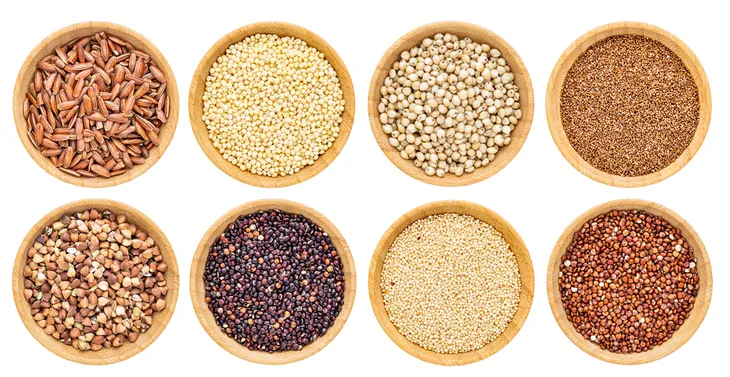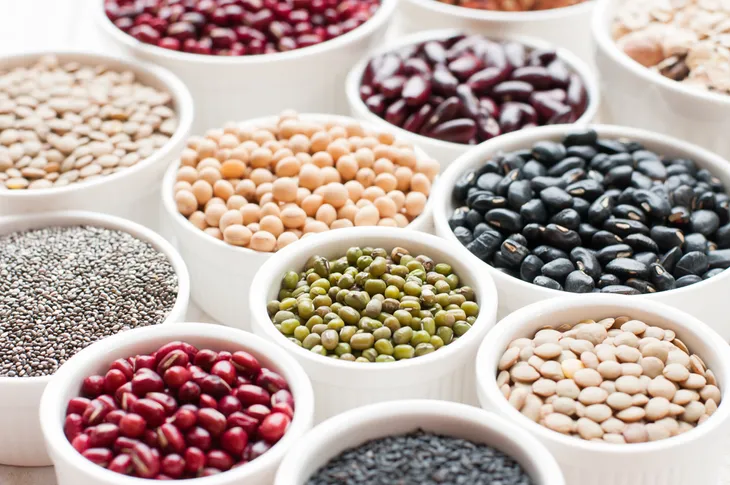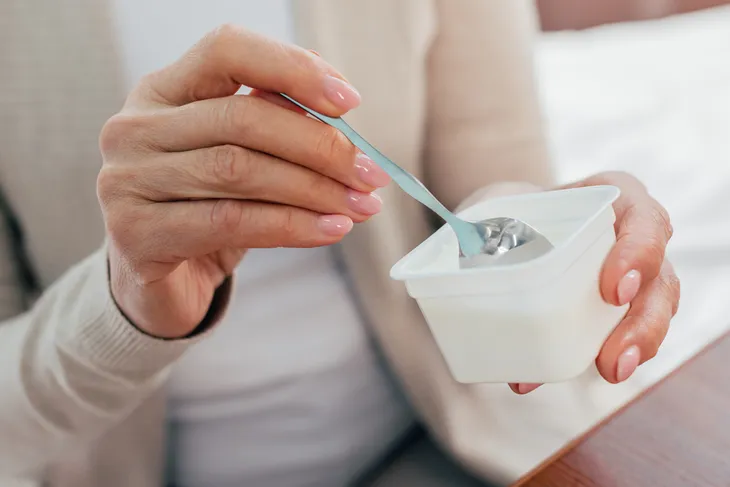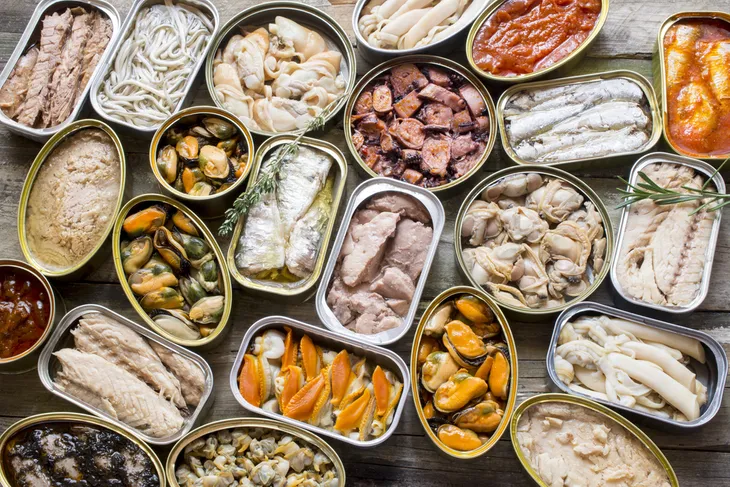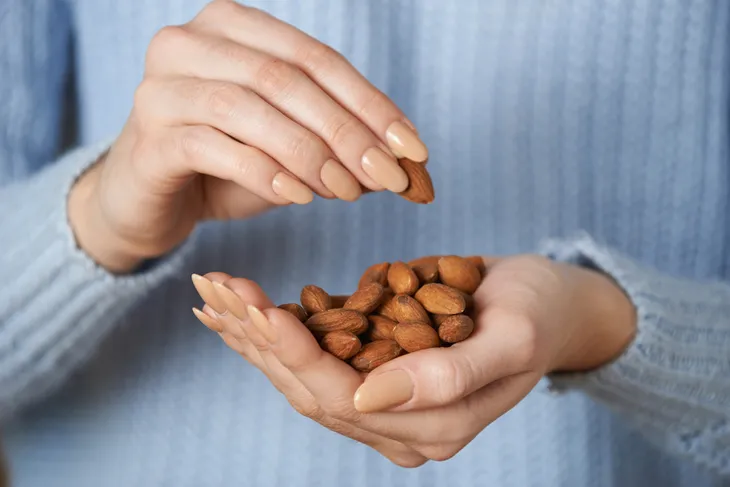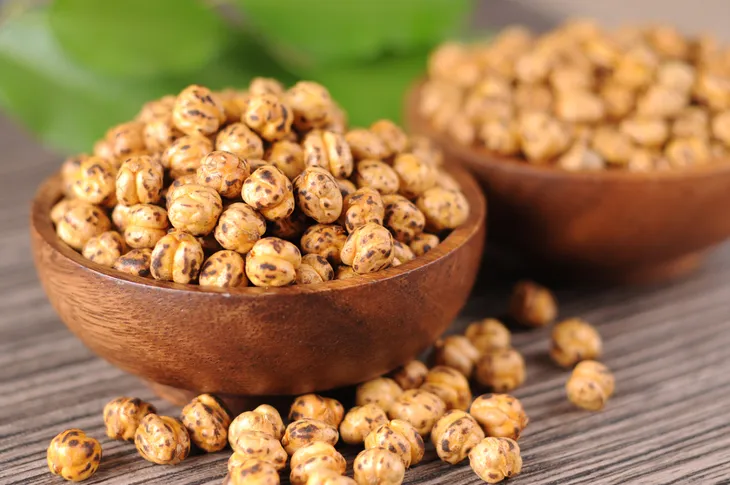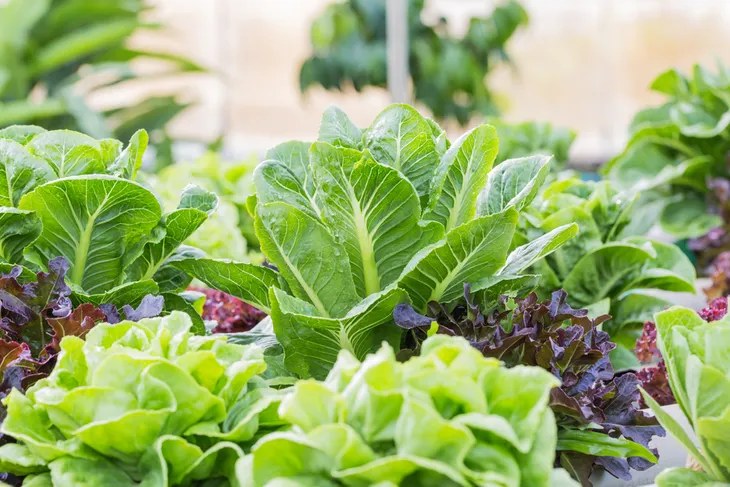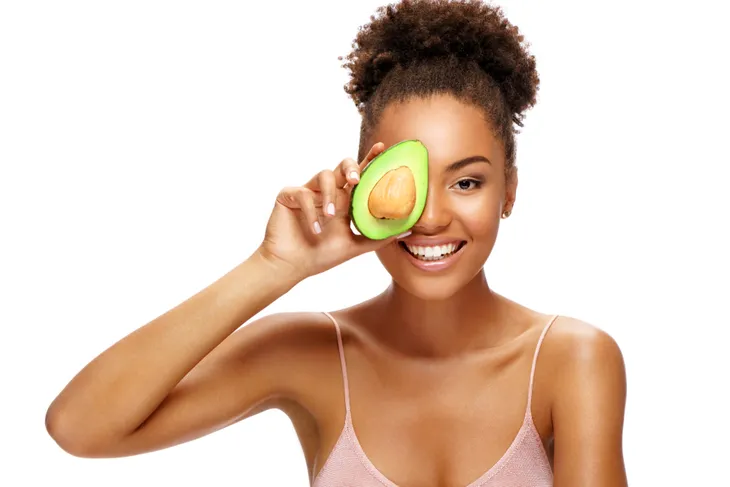Bloating, abdominal cramps, irritability, hunger cravings…I’m looking at you chocolate, and crying at the drop of a hat—UGH—it’s that time of the month, yet again!
If you one of the unlucky women who suffer extremely uncomfortable premenstrual syndrome aches and pains, the following 10 foods may help you suffer a lot less each month when “Aunt Flo” comes to visit…
Whole Grains
While simple carbohydrates, like white breads and pastas, will cause an energy crash—carbohydrates of the complex variety actually soothe premenstrual hunger pangs, irritability, and fatigue. This is because whole grains—like oats, quinoa, amaranth, barley, and buckwheat deliver a hearty dose of serotonin, known as the “feel good” and “sedative” neurotransmitter.
Beans
While low serotonin levels caused by refined carbs will cause sleep depravity, energy lulls, and exacerbated PMS symptoms. Foods high in protein and complex carbohydrates—such as kidney beans, black beans, and navy beans—will ward off irritable and achy PMS-related ailments.
Chocolate
It turns out that you crave chocolate “that time of the month,” ladies and now you have an explanation that you can stand by and use to justify to yourself why you’re elbow deep in a pint of rocky road. Studies show that chocolate emits soothing endorphins throughout the body in times of stress. Plus, a few squares of dark chocolate are rich in magnesium—to reduce bloating and fluid retention.
Yogurt
Reach for a creamy cup of yogurt the next time you feel achy PMS symptoms rearing their ugly heads. Why? Dairy foods are high in calcium, which staves off mood swings, bloating, irritability, and even painful cramps. In fact, many women who suffer painful PMS symptoms are calcium-deficient.
Canned Fish
If you regularly pop a can of tuna, sardines, or salmon, make sure you’re eating the little bones too. Not only is canned first a great source of calcium, the little bones give the meat a calcium-rich boost to replenish lagging hormones that can plummet and worsen PMS symptoms.
Almonds
If you eat almonds to ward off PMS-related woes—like moodiness, bloating, and cramps—make sure to munch them with the skins intact. It turns out that the majority of the magnesium in almonds is retained in the skins.
Chickpeas
Chickpeas, or garbanzo beans, should be considered PMS-fighting, super heroes. These little legumes are the trifecta of nutrients: magnesium, which lessens water retention and bloating; vitamin B6, which eases breast and muscle soreness; and manganese, which soothes irritability and depression; and manganese.
Leafy Greens
Spinach, arugula, and kale…oh my! Leafy greens such as these are powerful sources of magnesium, which eases tension in the body—a great perk if you suffer from PSM-related headaches, muscles aches, and abdominal cramps!
Water
Good old H20, not only do you ease painful bloating by flushing out excess sodium the body that causes inflammation; foods high in water content, like watermelon and cucumbers provide a healthy, nutritious, and detoxifying snack before and during menstruation.
Avocados
Avocados are a rich source of vitamin E, which is great news if you suffer from painfully, tender breasts before and during your period. Taking regular vitamin E supplements can also help reduce the instance of cysts inside breast tissues.

